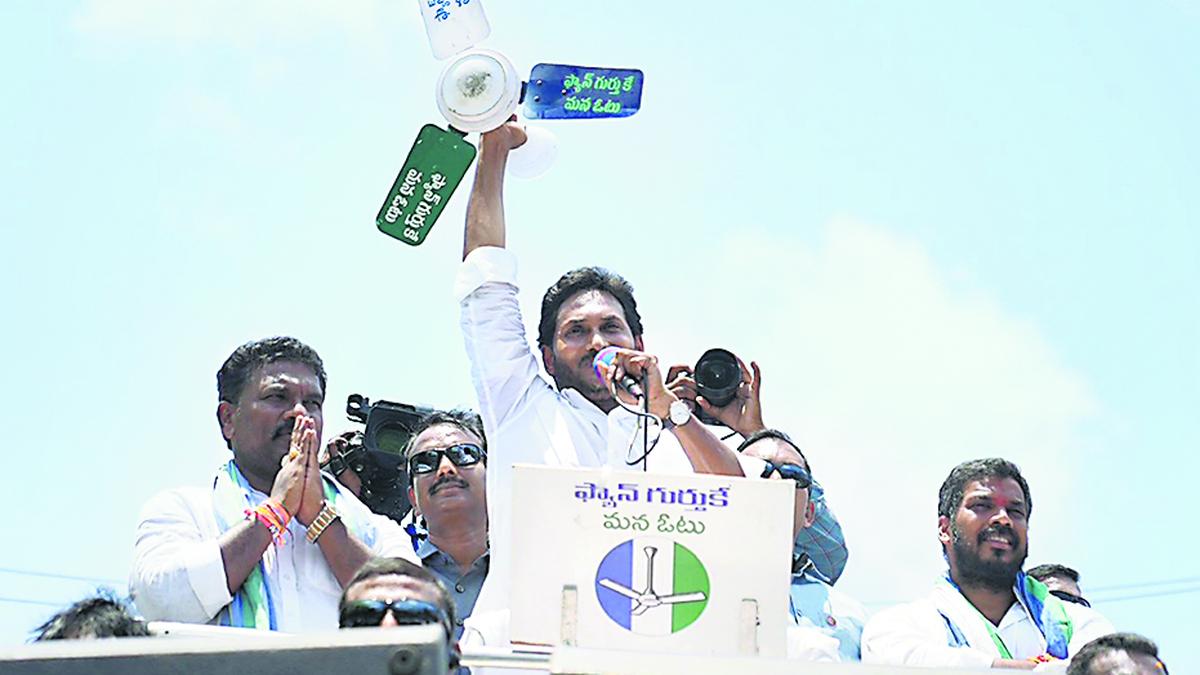
Counting the failures of the past decade in Andhra Pradesh Premium
The Hindu
Andhra Pradesh struggles without a capital, facing economic challenges and unresolved post-bifurcation issues with Telangana.
Andhra Pradesh is a State without a capital. The Andhra Pradesh Reorganisation Act, 2014, had said that Hyderabad would be the common capital of Andhra Pradesh and Telangana until June 2, 2024, following the bifurcation of composite Andhra Pradesh in 2014. While a few office spaces, an interim Secretariat, and a High Court have been established, successive governments have not been able to make Amaravati the capital.
Andhra Pradesh has also not made rapid strides from a development and economic perspective. Major projects such as the Polavaram project, the Kadapa Steel Plant, and the South Coast Railway Zone in Visakhapatnam remain unrealised dreams. The Polavaram project is delayed because of technical issues and lack of funds. Expert committees have said that establishing an integrated steel plant in YSR Kadapa district is not technically and economically feasible. Though the Centre cleared the decks for operationalising the South Coast Railway Zone, the project has not taken off. The Union government has claimed that the State has not handed over land, while the Andhra Pradesh government has asserted that 52 acres were identified at Mudasarlova in Visakhapatnam and an agreement was made in this regard.
In Parliament, both the BJP and the Congress promised Special Category Status (SCS) to Andhra Pradesh, but the Union government turned down the proposal. The TDP walked out of the NDA in 2018 over the SCS issue and faced a drubbing in the 2019 elections. Apart from reminding the Union government every now and then about the SCS, the YSRCP has been unable to mount pressure on it.
The economy of the State has also not improved compared to States such as Maharashtra and Gujarat. Apart from Kia Motors in Anantapur, reportedly no other major players have ventured into Andhra Pradesh. Instead, Amara Raja Batteries relocated operations to neighbouring States. The Reorganisation Act mandated the Union government to lend support to Andhra Pradesh for its resource gap for 2014-15. The TDP government pegged the revenue deficit at ₹16,078 crore, but the Union government pruned it to ₹3,979.50 crore. The revenue deficit touched ₹31,479.88 crore by March 2024 (preliminary estimates).
Andhra Pradesh and Telangana still face unresolved issues post-bifurcation, including division of assets and pending power bill dues. The division of various institutions and corporations, listed in Schedule IX and Schedule X of the Reorganisation Act, has not been completed due to a lack of consensus. According to the Act, as many as 89 government companies and corporations are listed in Schedule IX. Assets belonging to nearly 245 institutions mentioned in Schedules IX and X, worth about ₹1.42 lakh crore, are yet to be divided between the two States.
The people of Andhra continue to rely on Hyderabad for health and educational facilities. Policymakers and bureaucrats are not in Hyderabad, but they are still connected to the city emotionally. This could be one of the reasons for the tardy progress in Andhra Pradesh.
In this scenario, it is important that the party which forms the next government focuses on establishing a capital in the State. The YSRCP put forth the idea of three capitals, but this may not be easy and may run into legal issues. Similarly, a grandiose capital, as planned by the TDP, will have fiscal problems if the various welfare schemes promised in the manifestos are implemented. To win investors’ confidence, the government has to develop a capital with the resources it has now.

The Karnataka government has drafted a comprehensive master plan for the integrated development of Kukke Subrahmanya temple, the State’s highest revenue-generating temple managed by the Hindu Religious Institutions and Charitable Endowments Department. The redevelopment initiative is estimated to cost around ₹254 crore and aims to enhance infrastructure and facilities for devotees.












